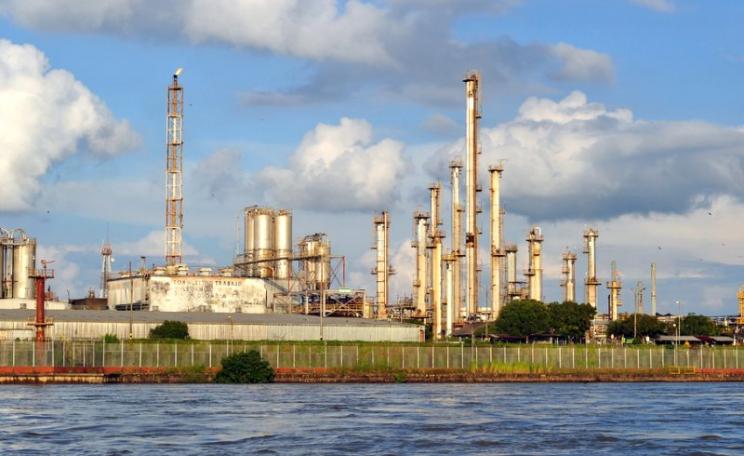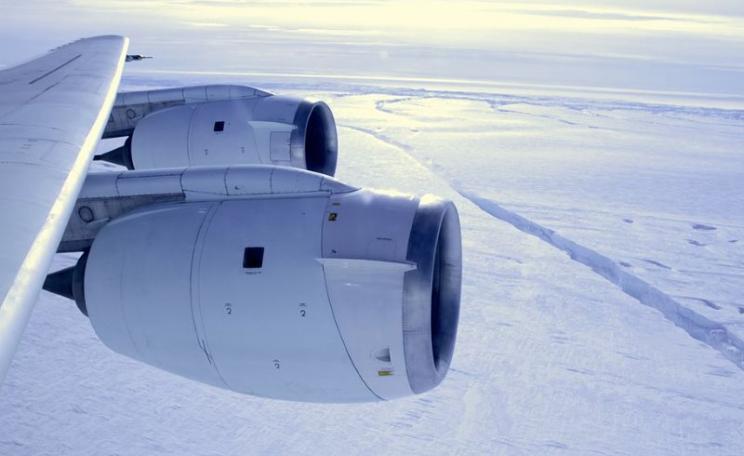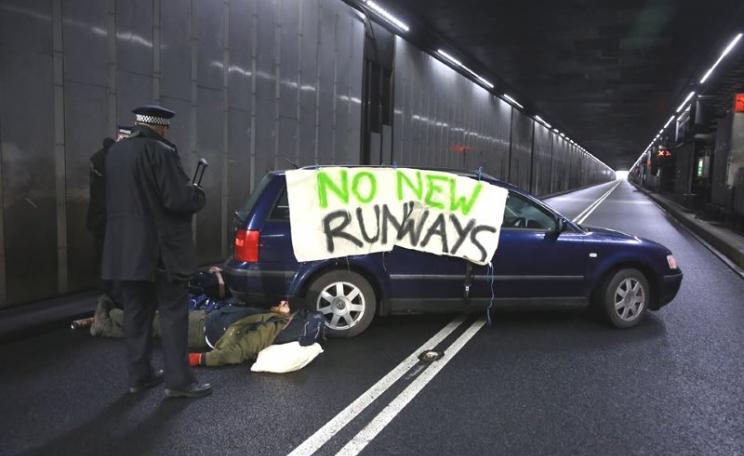In this political climate there is little chance that a Government will feel compelled to take risks and make controversial decisions in order to tackle the true threat of rising temperatures.
David Cameron may like to take a flick through the photo albums on April 20 next year and see what he was doing on this date a decade ago.
The then-Leader of the Opposition went on his Norwegian adventure, travelling on a husky sled to the Scott Turner glacier on the island of Svalbard.
The glacier lost half its mass over the past 100 years and the aspiring prime minister seemed a convert to the green cause, ruling out a third runway at Heathrow.
Not long ago, people were sheepish about taking long-haul flights, the Al Gore climate change documentary movie An Inconvenient Truth was a must-see and the world feared for the fate of polar bears.
In the half-decade since the last election a torrent of terrifying evidence of arctic ice melting has poured out. The horrific images of refugees massing in North Africa is just a preview of what will await if climate change renders swathes of the world uninhabitable.
And the UK has been battered with extreme weather. When the sea wall at Dawlish in Devon collapsed in a storm last year a stretch of railway was left hanging in mid-air; in February 90,000 homes were without power when gusts of more than 100mph hit Wales.
The 'climate change election'? Curiously, no
Surely this election would be the one in which climate change is finally front and centre of the debate? It hasn't turned out that way.
It now seems inevitable that a new runway will be approved for the southeast of England. As the economy recovers, we are jumping at opportunities to get on board planes and escape the UK - apparently the latest craze is the 'micro break', the one-night weekend.
Campaigns against wind farms generate much more intense grassroots excitement than attempts to lobby politicians to support action to curb climate change. Australia has abandoned its carbon levy and a recent study of 500 of the world's biggest investors found 232 did nothing to address climate change.
What happened? Are we in denial or apathetic?
My hunch is that in the prosperous years leading up to the 2008 crash, when growth seemed unstoppable, it was popular to talk about making lifestyle changes. But when the banking crisis hit and austerity policies were unleashed we were confronted with a reality in which luxuries were not just unsustainable but something much more frightening: unaffordable.
Mr Cameron may well have been sincere in his concern about the threat of climate change but his Government's mission was to rescue the economy and reignite growth.
Immediate threats trump the far greater long term risks
Recession battered voters have spent more time worrying about paying for their energy bills than fretting about how the electricity is generated; people are more concerned about the security of their pensions funds than whether these depend on carbon-powered profits.
Labour has talked of a cost of living crisis and the Greens have campaigned on the damage that austerity has brought to the country. UKIP's energy spokesman Roger Helmer did not appear to worry that he would lose thousands of votes when he recently said he did not "believe that the changes in climate are substantially caused by human activity."
In this political climate there is little chance that a Government will feel compelled to take risks and make controversial decisions in order to tackle the true threat of rising temperatures.
Environmental challenges have also been forced down the agenda because we are confronted with immediate security threats that can appear significantly more urgent. When Russian operatives are reportedly toting guns in Ukraine and so-called Islamic State extremists are spreading mayhem in the Middle East and North Africa, the danger of rising sea levels seems like an issue that can sit on the backburner.
The trouble is that in this political climate there is little chance that a Government will feel compelled to take risks and make controversial decisions in order to tackle the true threat of rising temperatures. Whitehall machinery rarely cranks into action unless the country reverberates with cries that 'something must be done'.
Can we summon up serious political will for Paris in December?
An opportunity to get something done looms on the horizon but is there time to generate the political momentum?
In late November around 40,000 people are due to converge on Paris for the country's largest ever diplomatic event. The United Nations Climate Change Conference has the ambitious goal of securing a universal and legally binding agreement to ensure temperatures do not rise by more than two degrees celsius.
Nothing will happen unless world leaders are terrified of coming home without a deal. And for that to happen, people have to kick up a fuss fast.
The Pope seems keen to play his part. In the coming months we can expect an encyclical on climate change. Cardinal Peter Turkson, who helped write the first draft, has said that regulation alone will not be enough to stop climate change but a "changing of human hearts" is required.
The reverse is also true - unless there is a changing of human hearts politicians won't be compelled to regulate.
David Williamson is the Political Editor of Media Wales, publisher of Wales Online, where this article first appeared.
Action: 'Occupy Gandhi' climate action at the Mahatma Gandhi statue in Parliament Square, London, Monday 4th May, starting at 12 noon.
More information on Facebook and Twitter / #OccupyGandhi and Occupy Democracy.




